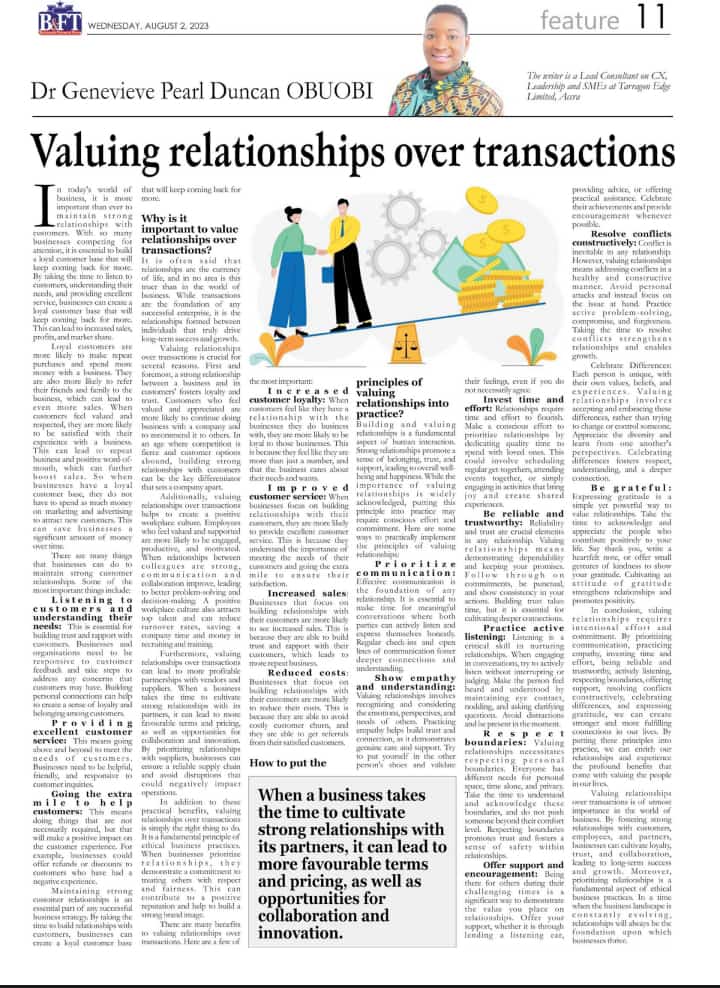In today’s world of business, it is more important than ever to maintain strong relationships with customers. With so many businesses competing for attention, it is essential to build a loyal customer base that will keep coming back for more. By taking the time to listen to customers, understanding their needs, and providing excellent service, businesses can create a loyal customer base that will keep coming back for more. This can lead to increased sales, profits, and market share.
Loyal customers are more likely to make repeat purchases and spend more money with a business. They are also more likely to refer their friends and family to the business, which can lead to even more sales. When customers feel valued and respected, they are more likely to be satisfied with their experience with a business. This can lead to repeat business and positive word-of-mouth, which can further boost sales. So when businesses have a loyal customer base, they do not have to spend as much money on marketing and advertising to attract new customers. This can save businesses a significant amount of money over time.
There are many things that businesses can do to maintain strong customer relationships. Some of the most important things include:
Listening to customers and understanding their needs: This is essential for building trust and rapport with customers. Businesses and organisations need to be responsive to customer feedback and take steps to address any concerns that customers may have. Building personal connections can help to create a sense of loyalty and belonging among customers.
Providing excellent customer service: This means going above and beyond to meet the needs of customers. Businesses need to be helpful, friendly, and responsive to customer inquiries.
Going the extra mile to help customers: This means doing things that are not necessarily required, but that will make a positive impact on the customer experience. For example, businesses could offer refunds or discounts to customers who have had a negative experience.
Maintaining strong customer relationships is an essential part of any successful business strategy. By taking the time to build relationships with customers, businesses can create a loyal customer base that will keep coming back for more.
WHY IS IT IMPORTANT TO VALUE RELATIONSHIPS OVER TRANSACTIONS?
It is often said that relationships are the currency of life, and in no area is this truer than in the world of business. While transactions are the foundation of any successful enterprise, it is the relationships formed between individuals that truly drive long-term success and growth.
Valuing relationships over transactions is crucial for several reasons. First and foremost, a strong relationship between a business and its customers’ fosters loyalty and trust. Customers who feel valued and appreciated are more likely to continue doing business with a company and to recommend it to others. In an age where competition is fierce and customer options abound, building strong relationships with customers can be the key differentiator that sets a company apart.
Additionally, valuing relationships over transactions helps to create a positive workplace culture. Employees who feel valued and supported are more likely to be engaged, productive, and motivated. When relationships between colleagues are strong, communication and collaboration improve, leading to better problem-solving and decision-making. A positive workplace culture also attracts top talent and can reduce turnover rates, saving a company time and money in recruiting and training.
Furthermore, valuing relationships over transactions can lead to more profitable partnerships with vendors and suppliers. When a business takes the time to cultivate strong relationships with its partners, it can lead to more favourable terms and pricing, as well as opportunities for collaboration and innovation. By prioritizing relationships with suppliers, businesses can ensure a reliable supply chain and avoid disruptions that could negatively impact operations.
In addition to these practical benefits, valuing relationships over transactions is simply the right thing to do. It is a fundamental principle of ethical business practices. When businesses prioritize relationships, they demonstrate a commitment to treating others with respect and fairness. This can contribute to a positive reputation and help to build a strong brand image.
There are many benefits to valuing relationships over transactions. Here are a few of the most important:
Increased customer loyalty: When customers feel like they have a relationship with the businesses they do business with, they are more likely to be loyal to those businesses. This is because they feel like they are more than just a number, and that the business cares about their needs and wants.
Improved customer service: When businesses focus on building relationships with their customers, they are more likely to provide excellent customer service. This is because they understand the importance of meeting the needs of their customers and going the extra mile to ensure their satisfaction.
Increased sales: Businesses that focus on building relationships with their customers are more likely to see increased sales. This is because they are able to build trust and rapport with their customers, which leads to more repeat business.
Reduced costs: Businesses that focus on building relationships with their customers are more likely to reduce their costs. This is because they are able to avoid costly customer churn, and they are able to get referrals from their satisfied customers.
HOW TO PUT THE PRINCIPLES OF VALUING RELATIONSHIPS INTO PRACTICE?
Building and valuing relationships is a fundamental aspect of human interaction. Strong relationships promote a sense of belonging, trust, and support, leading to overall well-being and happiness. While the importance of valuing relationships is widely acknowledged, putting this principle into practice may require conscious effort and commitment. Here are some ways to practically implement the principles of valuing relationships:
Prioritize Communication: Effective communication is the foundation of any relationship. It is essential to make time for meaningful conversations where both parties can actively listen and express themselves honestly. Regular check-ins and open lines of communication foster deeper connections and understanding.
Show Empathy and Understanding: Valuing relationships involves recognizing and considering the emotions, perspectives, and needs of others. Practicing empathy helps build trust and connection, as it demonstrates genuine care and support. Try to put yourself in the other person’s shoes and validate their feelings, even if you do not necessarily agree.
Invest Time and Effort: Relationships require time and effort to flourish. Make a conscious effort to prioritize relationships by dedicating quality time to spend with loved ones. This could involve scheduling regular get-togethers, attending events together, or simply engaging in activities that bring joy and create shared experiences.
Be Reliable and Trustworthy: Reliability and trust are crucial elements in any relationship. Valuing relationships means demonstrating dependability and keeping your promises. Follow through on commitments, be punctual, and show consistency in your actions. Building trust takes time, but it is essential for cultivating deeper connections.
Practice Active Listening: Listening is a critical skill in nurturing relationships. When engaging in conversations, try to actively listen without interrupting or judging. Make the person feel heard and understood by maintaining eye contact, nodding, and asking clarifying questions. Avoid distractions and be present in the moment.
Respect Boundaries: Valuing relationships necessitates respecting personal boundaries. Everyone has different needs for personal space, time alone, and privacy. Take the time to understand and acknowledge these boundaries, and do not push someone beyond their comfort level. Respecting boundaries promotes trust and fosters a sense of safety within relationships.
Offer Support and Encouragement: Being there for others during their challenging times is a significant way to demonstrate the value you place on relationships. Offer your support, whether it is through lending a listening ear, providing advice, or offering practical assistance. Celebrate their achievements and provide encouragement whenever possible.
Resolve Conflicts constructively: Conflict is inevitable in any relationship. However, valuing relationships means addressing conflicts in a healthy and constructive manner. Avoid personal attacks and instead focus on the issue at hand. Practice active problem-solving, compromise, and forgiveness. Taking the time to resolve conflicts strengthens relationships and enables growth.
Celebrate Differences: Each person is unique, with their own values, beliefs, and experiences. Valuing relationships involves accepting and embracing these differences, rather than trying to change or control someone. Appreciate the diversity and learn from one another’s perspectives. Celebrating differences fosters respect, understanding, and a deeper connection.
Be Grateful: Expressing gratitude is a simple yet powerful way to value relationships. Take the time to acknowledge and appreciate the people who contribute positively to your life. Say thank you, write a heartfelt note, or offer small gestures of kindness to show your gratitude. Cultivating an attitude of gratitude strengthens relationships and promotes positivity.
In conclusion, valuing relationships requires intentional effort and commitment. By prioritizing communication, practicing empathy, investing time and effort, being reliable and trustworthy, actively listening, respecting boundaries, offering support, resolving conflicts constructively, celebrating differences, and expressing gratitude, we can create stronger and more fulfilling connections in our lives. By putting these principles into practice, we can enrich our relationships and experience the profound benefits that come with valuing the people in our lives.
Valuing relationships over transactions is of utmost importance in the world of business. By fostering strong relationships with customers, employees, and partners, businesses can cultivate loyalty, trust, and collaboration, leading to long-term success and growth. Moreover, prioritizing relationships is a fundamental aspect of ethical business practices. In a time when the business landscape is constantly evolving, relationships will always be the foundation upon which businesses thrive.
Dr Genevieve Pearl Duncan Obuobi
Lead Consultant on CX, Leadership and SMEs
Tarragon Edge Limited, Accra
Please wait while flipbook is loading. For more related info, FAQs and issues please refer to DearFlip WordPress Flipbook Plugin Help documentation.




